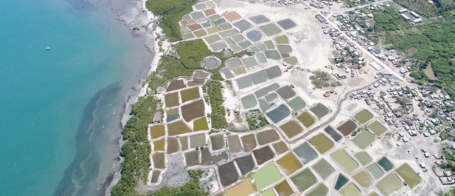Roots for peace: Uncovering climate security challenges in Haiti and what to do about them
Haiti is one of the most vulnerable countries in Latin America and the Caribbean to climate change. Rising temperatures and declining rainfall have intensified drought; climate-related storms are growing more intense, causing devastating flooding; and, as a coastal nation, Haiti is at a high risk of sea level rise, which threatens the lives and livelihoods of many people living close to the coast. These risks are all set to intensify over the next 30 years. Meanwhile, Haiti is also in the midst of a deep security, political, economic and humanitarian crisis, with armed gangs controlling most of the capital city, Port-au-Prince, and almost half of Haitians needing humanitarian assistance. Climate change, by adversely impacting livelihoods, food security, water scarcity and health conditions, is exacerbating the current multifaceted and complex crisis grappling the country, as also recently acknowledged by the UN Security Council. Without properly addressing climate and environmental challenges, the violence, exclusion, and poverty that confront so many Haitians are also doomed to spiral further and become entrenched in daily life.
The study identified five main climate security pathways for Haiti and proposed innovative responses to tackle them by integrating climate change adaptation and environmental protection with peacebuilding measures. The policy brief presents some of the key findings of the study and proposes a new approach with an explicit focus on climate and peacebuilding, and with inclusion at its heart, to help address Haiti’s climate security challenges. Both are available in English and French.
Share on


